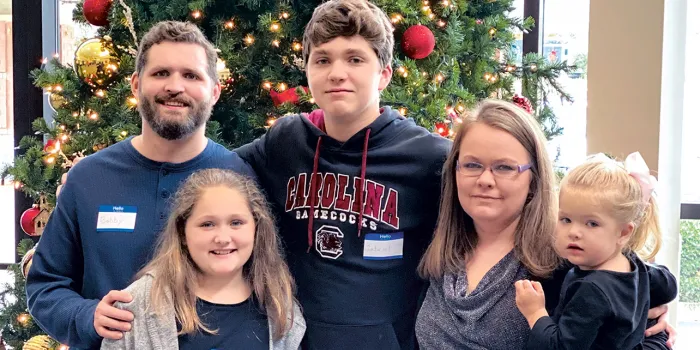I always felt different from other kids because of my hemophilia. I endured pain nearly 24/7. While some bleeds came and went, others were not as short-term. Sometimes a bleed would wake me from a dead sleep. Although my parents were always supportive, for some reason I never wanted to bother them. So I learned to deal with whatever was happening by myself. Now, at 34 years old, I realize that’s definitely not the best way to handle things.
Growing up, I didn’t have a whole lot of friends. My dad was in the Air Force, so we moved around quite a bit. It was difficult for me to connect with other kids. I tried group sports, like basketball and swimming, but they really weren’t for me. I felt uncomfortable in large group settings, and I wasn’t good at dealing with rejection. Kids often made fun of me because I had a limp, and I never handled it well. All in all, I was very shut down and turned inward.
In my early 20s, I had surgery on my ankles. The doctor prescribed painkillers to help with the physical pain. But taking the medicine dulled my emotional pain as well, so I continued to take them long after my ankles healed.
After a few years, I realized I couldn’t go on like that. So I quit cold turkey. I coped with the constant pain in the way I had as a kid, burying myself deeper and deeper inside my own head. By the time I hit 30, I realized I needed to deal with the issues head-on.
When I joined the board of directors of my local NHF chapter, Hemophilia of South Carolina, I started to meet people like me. I saw how the community—and men in particular—didn’t talk a lot about our emotions. I recognized that I wanted to do something to help other men who dealt with much of the same things I had. So I started a men’s group.
I’m proud to say it’s taken off really fast. We began with three men, and in only five months we were up to nine. We meet about once a month, and we talk about whatever is going on in our lives.
Talking really helped. But I still needed more. So I started to keep a journal to express my emotions even more intensely. It felt so good to release it all on paper. Once I saw how much relief it brought me, I began to encourage the men in my group to do something like it. They record their thoughts and feelings on audiotape, then get it transcribed. I’m not sure what we’re going to do with the collection of stories, but I think that getting them out for the world to see will be helpful for so many men with chronic diseases.
I hope that by communicating my story, it will encourage others who struggle like I do. Our voices are important, and if we share them, others will realize they’re not alone, and perhaps a little more connected than they thought.

